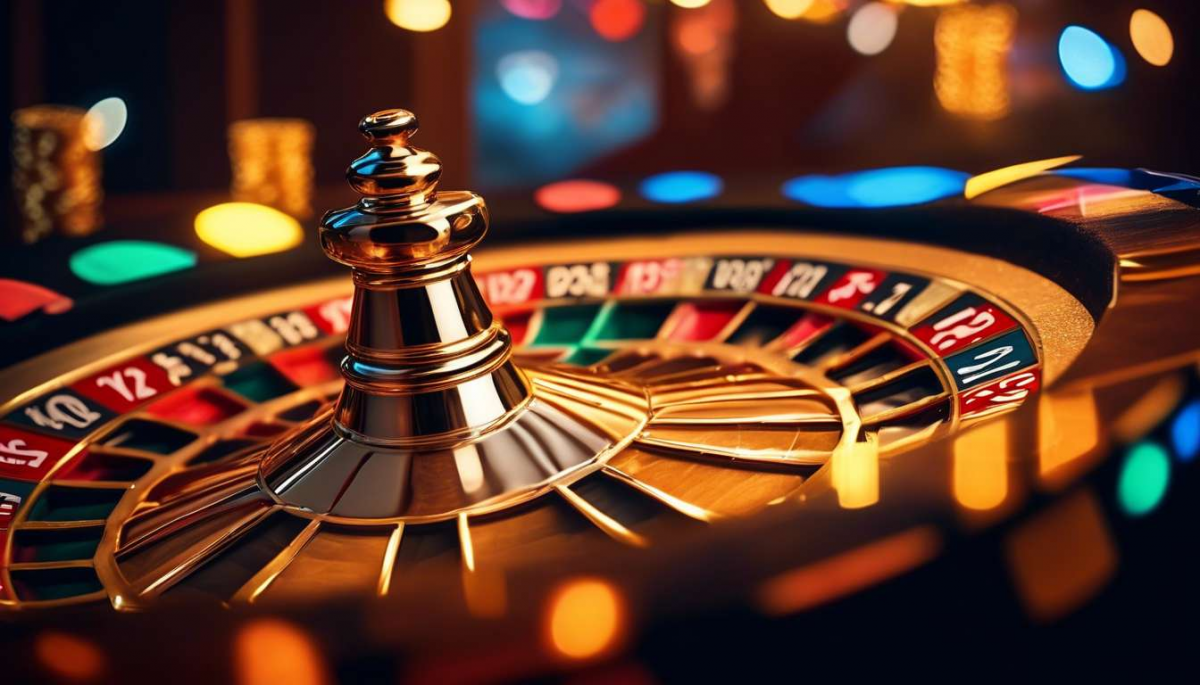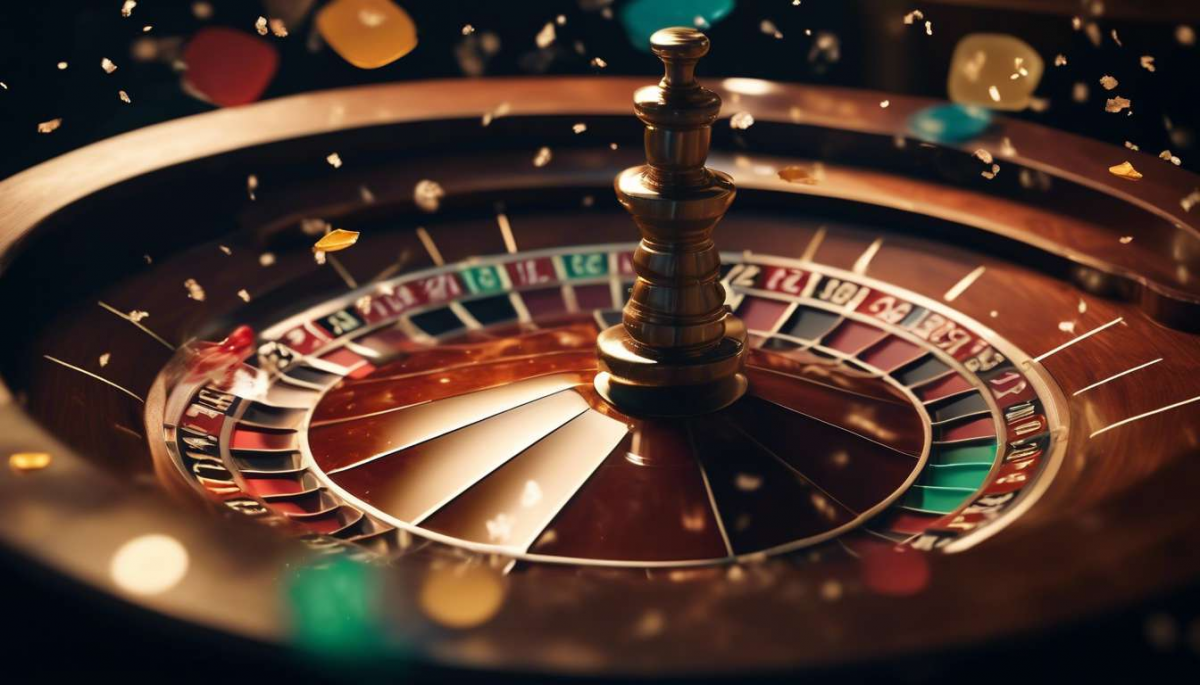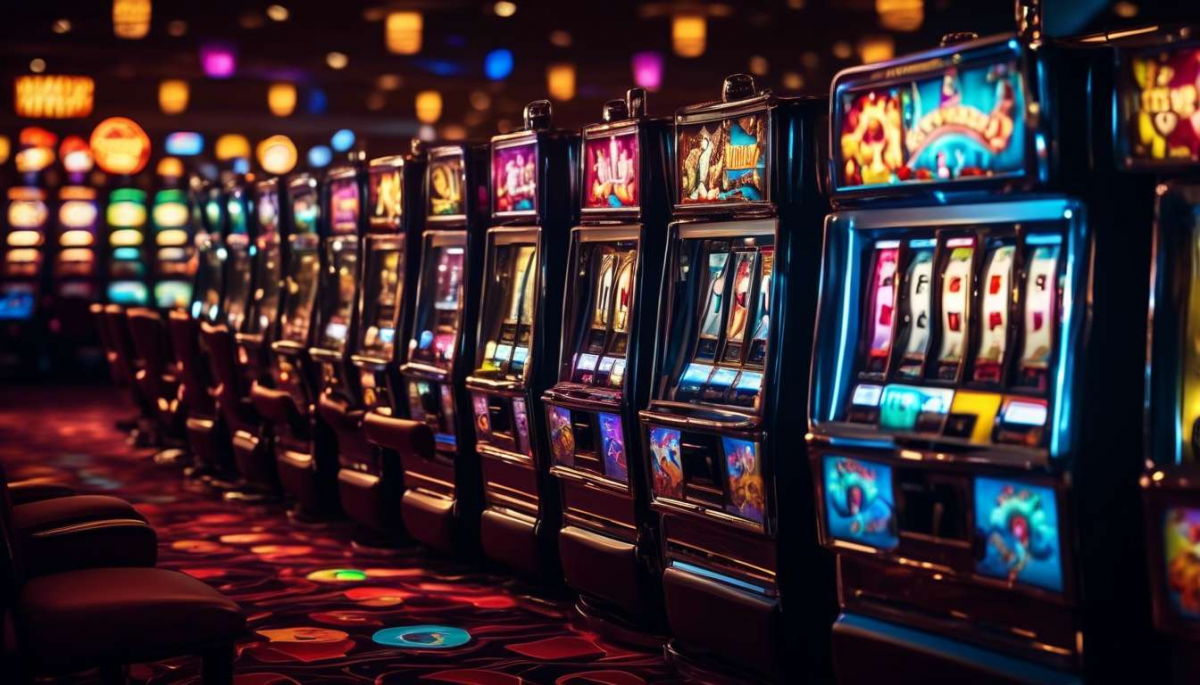We’ve all heard the tales and rumors surrounding casino winnings—those whispered legends that often captivate our imaginations. As avid casino enthusiasts, we gather around tables and slot machines, buzzing with excitement and anticipation. But amidst the flashing lights and rhythmic sounds of the casino floor, myths about winning often cloud our judgment.
Today, we aim to dispel these myths and shed light on the truths hidden behind each spin and shuffle. Together, we’ll explore the most common misconceptions:
-
The "Due" Machine Myth:
- Many believe that certain machines are "due" for a win after a series of losses.
- In reality, each spin is independent, governed by random number generators, meaning past results do not influence future outcomes.
-
Secret Strategies of Seasoned Players:
- There’s a belief that experienced gamblers have secret strategies guaranteeing success.
- While experience can improve decision-making, no strategy can overcome the house edge inherent in casino games.
By understanding these myths, we can approach our gaming experiences with clearer minds and perhaps even enhance our chances of success.
Let’s embark on this journey to separate fact from fiction and uncover the realities of casino winnings that often go unnoticed.
House Edge Misconceptions
Many people mistakenly believe that casinos manipulate odds beyond the house edge to ensure greater profits. Let’s clear this up together:
- The house edge is a built-in advantage that guarantees casinos a profit over time without needing further manipulation.
- It is a fundamental part of the game design, ensuring long-term viability rather than short-term deceit.
As a community, we often fall prey to the gambler’s fallacy, which is the belief that a losing streak increases our chances of winning.
- Key understanding: Each game outcome is independent and unaffected by past results.
- Grasping this concept helps us make smarter decisions and feel more connected with others who understand these principles.
Jackpot frequency is another area where misconceptions arise. Many believe that jackpots are due if they haven’t hit recently. However, in reality:
- Each spin is a separate event.
- Recognizing this helps foster a shared understanding and enhances our gaming experiences.
By acknowledging these patterns, we can enjoy gaming together, knowing we are participating fairly and transparently.
Luck vs. Skill Debate
In the world of gambling, we’ve often debated whether luck or skill plays a more significant role in determining success.
On one hand, we know the house edge is a constant reminder that casinos are designed to profit over time. Yet, within that framework, skill-based games like poker allow us to tilt odds in our favor with strategy and experience.
For those of us who cherish the camaraderie and shared excitement of gambling, understanding these nuances is crucial. We’ve all heard stories of a jackpot frequency that seems almost magical, but relying solely on luck can lead to the gambler’s fallacy—believing that past outcomes affect future ones.
Ultimately, our community thrives on a balance of both luck and skill. The thrill of unpredictability combined with the satisfaction of honing our craft keeps us engaged. By acknowledging both elements, we not only become more informed players but also strengthen our bond over shared experiences and aspirations.

Hot and Cold Streaks
We’ve all experienced those moments when it seems like we’re on a winning streak, only for it to suddenly turn cold without warning. It’s easy to feel like we’re part of a special club when our luck’s on fire. However, casinos are masters at maintaining their advantage. The house edge is designed to ensure that, over time, the casino comes out ahead.
Many of us fall into the trap of believing that if we’ve hit a hot streak, it will continue, or if we’re cold, we’re due for a win. This thinking aligns with the gambler’s fallacy—the mistaken belief that past events influence future outcomes. Each spin of the wheel or roll of the dice is independent and unaffected by previous results.
Regarding jackpot frequency, it’s important to remember that they’re random. Though it feels like we can predict them, it’s the house edge that ensures jackpots remain elusive.
We’re all in this together, navigating the highs and lows.

The Gambler’s Fallacy
The Gambler’s Fallacy
We’ve all fallen for the belief that if a coin lands on heads several times, tails must be just around the corner. This thinking is known as the gambler’s fallacy, a trap many of us have stumbled into at the casino.
Understanding Independence in Games
We assume that past events influence future outcomes, but in reality, each spin of the roulette wheel or roll of the dice is independent of the last.
The casino, with its built-in house edge, knows this all too well and thrives on our misconceptions.
Slot Machines and Jackpots
We often gather around slot machines, convinced that a jackpot is due just because it hasn’t hit in a while. However, the jackpot frequency is not something we can predict.
The randomness of each game ensures that every outcome is as unpredictable as the last.
Avoiding Pitfalls and Enjoying the Experience
By understanding the gambler’s fallacy, we can avoid the pitfalls of expecting patterns where none exist. Instead, we can focus on enjoying the camaraderie and excitement that brings us together in the first place.

Betting Systems Deception
Many of us are drawn to betting systems that promise to outsmart the casino, but these strategies often deceive us with false hope. We might feel a sense of camaraderie when we gather around a roulette table, armed with a ‘foolproof’ system, believing we’re a step ahead. However, the house edge is an ever-present reminder that casinos are designed to profit over time, regardless of our strategies.
We often fall into the trap of the gambler’s fallacy, thinking that a losing streak must end soon, or that a jackpot frequency can be predicted. These misconceptions can lead us astray, as each spin or card draw is independent of the previous ones. Casinos thrive because they exploit our desire to belong to the group that defies the odds.
It’s important to remember that no system can alter the mathematical advantage the house holds. Let’s embrace the thrill of the game, but remain aware that betting systems can’t change the eventual outcome.

Influence of Surroundings
Our Surroundings in a Casino
Our surroundings in a casino, from the vibrant lights to the energetic sounds, subtly influence our emotions and decision-making. As we step into this world of excitement, we’re drawn in by the allure of potential winnings and the camaraderie of fellow players.
It’s easy to feel like part of something bigger, a place where fortunes can change in an instant. However, while we revel in the thrill, we must remain mindful of the house edge, which ensures the casino’s long-term advantage.
Common Misconceptions
- We often fall prey to the gambler’s fallacy, believing past outcomes affect future results.
- The environment, filled with constant stimuli, can make us forget that each spin or deal is independent.
- We might think a jackpot is ‘due’ when it’s really all about probability.
Staying Grounded
By understanding these influences, we can enjoy the experience while staying grounded. Together, let’s embrace the excitement but remember the subtle forces at play that shape our choices.

Jackpot Frequency Myths
Many of us mistakenly believe that slot machines are programmed to hit jackpots at regular intervals, but this misconception overlooks the reality of random number generation. Slot machines operate independently of previous spins, making each result unique and unpredictable.
When we fall into the trap of thinking a jackpot is "due," we’re succumbing to the gambler’s fallacy, which can lead to misguided betting strategies.
We often seek patterns that aren’t there, hoping for a sense of control over the game. However, the house edge ensures that, over time, the casino will profit.
This doesn’t mean hitting a jackpot is impossible, but the frequency of jackpots isn’t something we can predict or influence by timing our play.
Understanding this can bring us closer to a community of informed players who recognize the importance of responsible gambling. By sharing this knowledge, we empower ourselves and others to enjoy the experience without unrealistic expectations, fostering a sense of belonging among savvy casino-goers.

The “Lucky Charm” Belief
Many of us cling to the belief that carrying a lucky charm can influence our success at the casino. We’ve all heard stories of someone winning big while clutching their favorite trinket. It’s tempting to believe that a rabbit’s foot or a special coin could tip the scales in our favor.
However, the reality is that these charms don’t affect the house edge, which is always stacked against us. The house edge is a mathematical advantage that ensures the casino profits over time, regardless of our lucky tokens.
Relying on a charm can also lead us into the gambler’s fallacy, where we mistakenly believe past events can influence future outcomes. This false sense of control can make us think a jackpot frequency is due to change, but each spin or deal remains independent.
While lucky charms might offer comfort and a sense of belonging in a hectic casino environment, they don’t alter the odds.
- Let’s enjoy the experience without relying solely on superstition.
What are the tax implications of casino winnings?
When we hit the jackpot at a casino, we need to be aware of the tax implications.
Winnings from gambling are generally taxable and need to be reported to the IRS. The casino may even issue a Form W-2G for larger wins.
It’s essential to keep accurate records of:
- Wins
- Losses
This will help us accurately report them on our tax return.
Remember, paying taxes on our casino winnings is crucial to avoid any issues with the IRS.
How do casinos ensure the fairness of their games?
Ensuring Fairness in Casinos
Casinos employ several measures to maintain the fairness of their games:
-
Random Number Generators (RNGs): These are used to ensure that game outcomes are entirely random and not influenced by any external factors.
-
Regular Audits: Casinos conduct regular audits by third-party organizations to verify the fairness and integrity of their games.
These steps help guarantee that the games are not rigged and that every player has an equal chance of winning.
By implementing these practices, casinos create a level playing field for all patrons, promoting transparency and trust in their operations.
Are there any strategies to manage gambling addiction?
Managing gambling addiction involves several important strategies:
-
Setting Limits
- Establish clear boundaries on time and money spent on gambling.
-
Seeking Support
- Reach out to friends, family, or support groups for encouragement and accountability.
-
Taking Breaks
- Regularly step away from gambling activities to reassess and prevent compulsive behavior.
Recognize Warning Signs: It’s crucial to identify signs of addiction and reach out for help when needed.
Establishing a Support Network: Building a network of supportive individuals can make a significant difference in overcoming addiction.
Self-Care and Professional Help:
- Prioritize self-care routines to maintain mental and emotional health.
- Seek professional guidance when necessary to address underlying issues.
Embracing these strategies can lead to a healthier relationship with gambling and promote overall well-being.
Conclusion
In conclusion, understanding the common myths surrounding casino winnings can help you make more informed decisions when gambling.
By debunking misconceptions about:
- house edge
- luck
- streaks
- betting systems
you can approach casino games with a clearer perspective.
Remember that:
- jackpot frequency
- lucky charms
- the influence of surroundings
are not guaranteed to affect your outcomes.
Stay informed, play responsibly, and enjoy the thrill of the game with a realistic mindset.